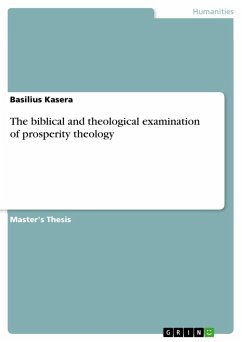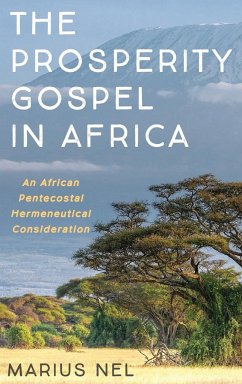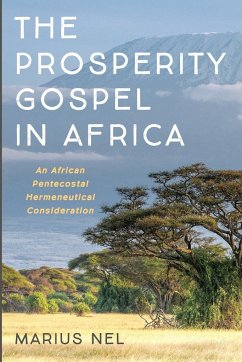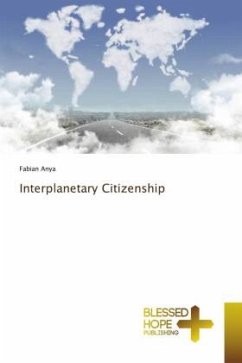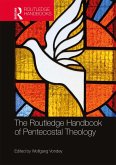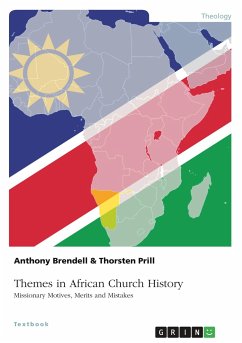Master's Thesis from the year 2012 in the subject Theology - Systematic Theology, grade: B, , course: Theology - Systematic Theology (Ethics), language: English, abstract: This thesis conducts a biblical and theological analysis of the prosperity theology's (PT) impact amongst the poor. The main problem is to seek ways of effectively responding to the biblical, theological, and ideological problems raised by PT in Namibia, without overlooking the social issues of poverty and suffering, which this theology claims to be solving. The subject under discussion is found in various denominations but especially amongst neo-Pentecostal churches and it is not a standardised theology. Through interacting with the various views of the proponents and opponents this research proposes that although PT may have certain positive aspects, it is a theology established upon faulty hermeneutics and is not helpful in providing biblically and theologically sound solutions to the problem of poverty.The research aims to show that Christians have a biblical mandate to care for the poor and to work towards assisting the poor to help themselves. However, we do not foresee a time in the here and now when poverty will be totally abolished. Living with this painful reality, we have the duty of continuously pointing people to the future hope in Christ. On the other hand, our looking to the future hope does not exempt us from doing our best in helping people in the here and now as God enables us.The research shows that the gospel is the hope for humanity and we should do away with methods and practices that do not have their roots in Scripture. Moreover, the church has a duty to warn against any theology that is conducted in an irresponsible manner and is given to reductionist arguments when it comes to providing solutions to human problems. Therefore, the research seeks to suggest biblical, theological and practical ways of responding to the issue of poverty and ministry to the poor.
Hinweis: Dieser Artikel kann nur an eine deutsche Lieferadresse ausgeliefert werden.
Hinweis: Dieser Artikel kann nur an eine deutsche Lieferadresse ausgeliefert werden.

